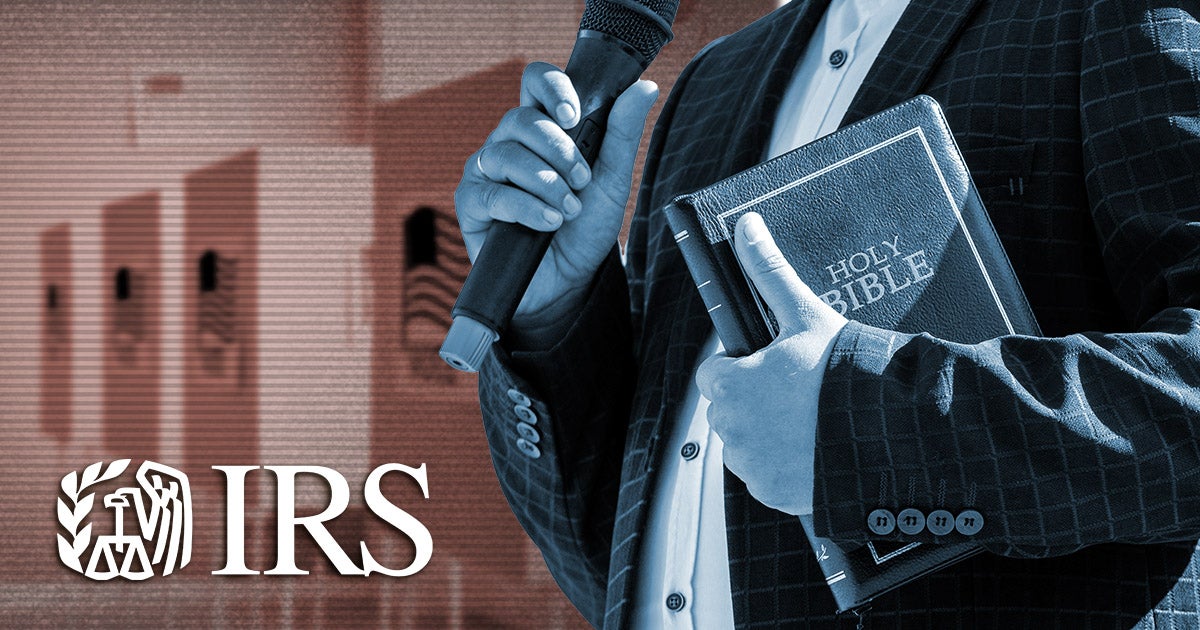
by Jorge Gomez • 2 minutes
For decades, IRS tax rules were used to silence churches and pastors. Congregations and religious leaders across the country lived under threat of losing tax-exempt status if they spoke out on political candidates.
Not anymore.
The IRS recently announced that churches and religious organizations can endorse political candidates and still maintain their tax-exempt status.
“This is great news for religious organizations, churches and religious liberty,” said Kelly Shackelford, President, CEO & Chief Counsel for First Liberty. “The IRS weaponized the Johnson Amendment to silence churches and pastors for decades. First Amendment rights don’t end when a pastor, church member or even a political candidate steps on the platform of a church.”
In a federal court filing to resolve a lawsuit by two Texas churches and the National Religious Broadcasters, the IRS said communications between a house of worship and its congregation are exempt from the Johnson Amendment. That decades-old provision in the U.S. tax code was used to bar houses of worship and religious nonprofits from endorsing political candidates.
“The Johnson Amendment does not reach speech by a house of worship to its congregation, in connection with religious services through its customary channels of communication on matters of faith, concerning electoral politics viewed through the lens of religious faith,” the IRS explained.
First Liberty successfully defended two churches recently, Grace Church St. Louis and New Way Church in Florida, after the IRS announced investigations into alleged political involvement. In both cases, the IRS closed the investigations.
First Liberty attorney Jeremy Dys explains in more detail what this recent change means for churches and religious leaders across the country:
There’s pending legislation in Congress that could repeal the Johnson Amendment altogether.
Rep. Mark Harris of North Carolina and Sen. James Lankford of Oklahoma introduced the Free Speech Fairness Act earlier this year.
Section 501(c)(3) of the U.S. tax code states that tax-exempt groups “are absolutely prohibited from directly or indirectly participating in, or intervening in, any political campaign on behalf of (or in opposition to) any candidate for elective public office.”
The bill would allow such organizations to make statements relating to political campaigns if such statements are made in the ordinary course of carrying out its tax-exempt purpose.
Charitable groups would be given the freedom to comment as long as they don’t incur significant costs doing so. This means a pastor can mention a candidate during a sermon, or the leader of a religious organization can either criticize or express support for a politician’s stance in an email, newsletter or social media post to supporters.
Rep. Harris clarified that the legislation would not allow churches or nonprofits to become political action committees.
”We’re not looking for churches to become super PACS, that is certainly not the purpose of this,” he told The Daily Wire. “But it is to really restore free speech to the pulpits of America without any threat of our tax code.”
Dys adds that “the Johnson Amendment violates this nation’s historic respect for the independence of its houses of worship by inviting the IRS to investigate and intimidate churches for being civically engaged.”
Scholars and legal experts echo that concern and argue that the Johnson Amendment raises serious constitutional concerns. They claim it violates the Free Exercise and Establishment Clauses of the First Amendment and runs counter to the freedom of speech. Another concern is whether the government is attaching “an unconstitutional condition on a federal benefit,” namely tax-exempt status.
Our nation’s history and tradition are clear: faith leaders, congregations and ministries were never meant to be sidelined or silenced on political matters. The First Amendment protects the rights of all Americans to speak on matters of public concern, including elections and political candidates. Houses of worship were always meant to be able to express support or opposition for the people who seek to lead.